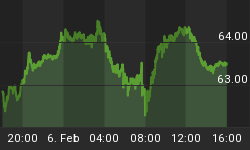This week, after the Japanese yen had surged to a fifteen-year high against the US dollar, the Japanese government decided to intervene in the foreign exchange market. To great fanfare, the Bank of Japan initiated a vigorous campaign to buy US dollars, thereby stemming the rise of the yen and pulling up the greenback. The effects were immediate, with the yen falling an astonishing 3% on the day of the announcement. At a time when American politicians are growing increasingly vocal about China's currency manipulations, Washington was strangely silent on the Japanese move. This was completely overlooked by the hawkeyed media.
While missing this blatant irony, the media spin doctors cast the Japanese decision as an attempt by the island state to prop up its own fragile economy. More accurately, the intervention was done to help American consumers buy more cars and electronics from Japan. In truth, although more American purchases would nominally benefit some Japanese exporters, a weaker currency is a detriment to the overall Japanese economy.
The politics of currency intervention are actually quite simple. Japan's economy is dominated by large manufacturers that export lots of goods to Americans. The problem is that Americans can't really afford to buy in the quantities that they did just a few years ago. So, instead of looking for new customers with more money to spend, either in their own country or in other productive economies, Japanese manufacturers use their political clout to lobby their government to bail out their traditional U.S. customers. The bailout takes the form of a direct transfer of purchasing power from Japanese savers to American consumers, so that Americans can continue buying products they couldn't otherwise afford. In short, pushing up the dollar allows Japanese exporters to postpone a necessary, but costly, restructuring.
The tendency for governments to sacrifice the needs of the general population in favor of entrenched corporate interests is not unique to Japan. In the United States, we have taken similar measures on behalf of our dominant industries. However, instead of manufacturers and exporters, whose political clout has waned along with their economic prospects, Washington has moved to protect the profits of the financial, retail, and real estate industries - the true heavyweights of the American corporate world. These industries profit when Americans borrow money to buy things they can't afford. To keep this behavior going, the government must make it possible for consumers to take on more debt; but, in so doing, these policies have left us with an ailing economy in need of deep and drastic restructuring.
In a way, what the Japanese government is doing for American consumers is very similar to what our government is doing for American homebuyers. Rather than let home prices fall, the US government subsidizes homebuyers so they can continue overpaying for houses they cannot actually afford. The beneficiaries of these moves are those selling, building, and financing overpriced homes. Unfortunately, the last thing we need as a nation is to build, buy, or finance more homes. Our economy would improve if the resources devoted to the real estate market could be devoted to other, more needed industries.
Japan should allow the dollar to fall, which would force their manufacturers to adapt to a changing global market where Americans consume less, and those in emerging markets consume more. Instead, it is vainly trying to preserve the status quo and appease entrenched political factions.
Just like here in the US, Japanese politicians take cover by falsely claiming that the intervention "saves jobs." However, the jobs that are saved come at the expense of more productive jobs that are either lost or not created. If Americans cannot afford to buy Japanese products, it makes no sense for the Japanese to continue selling them to us. Rather they should devote their time, effort, savings and resources to selling products to customers who can actually afford to pay.
Japan's bailout of American consumers is nothing more than international vendor financing. This is the same technique used by telecom companies during the Internet boom of the late '90s. In order to pump up short-term profits, manufacturers of communications gear loaned money to cash-strapped Internet startups so they could buy switches and routers. Of course, when the dot-coms went bankrupt, all those phony sales were written off; then, the stocks of those companies doing the financing, like Cisco, Lucent, and Nortel, collapsed as well (though they did not collapse to zero like the dot-com companies). Although their performance would have lagged during the boom, the equipment manufactures would have been in far better shape fundamentally if the phony sales had never been made.
The same fate awaits the US and Japan. In this analogy, Japan is Cisco and the United States is Pets.com. Sooner rather than later, both Japan and China will realize that they have been hoodwinked by a fast-talking sock puppet without a credible plan to pay them back. When that happens, they will take the write down and let us fend for ourselves.
For in-depth analysis of this and other investment topics, subscribe to The Global Investor, Peter Schiff's free newsletter. Click here for more information.
Click here to download Peter's latest Special Report: My Five Favorite Gold & Silver Mining Stocks.
Be sure to pick up a copy of Peter Schiff's just-released economic fable, How an Economy Grows and Why It Crashes.















